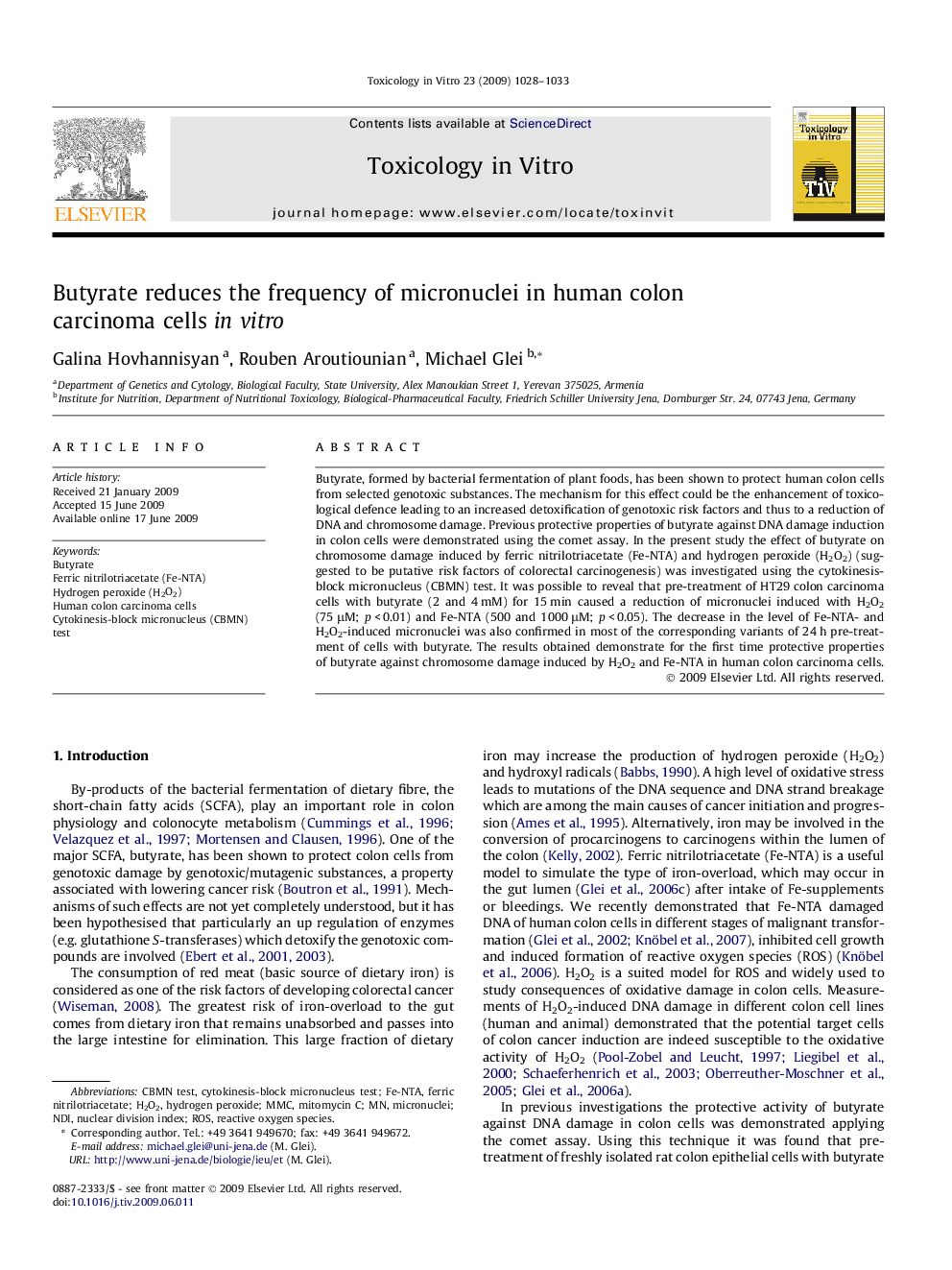| Article ID | Journal | Published Year | Pages | File Type |
|---|---|---|---|---|
| 2602984 | Toxicology in Vitro | 2009 | 6 Pages |
Abstract
Butyrate, formed by bacterial fermentation of plant foods, has been shown to protect human colon cells from selected genotoxic substances. The mechanism for this effect could be the enhancement of toxicological defence leading to an increased detoxification of genotoxic risk factors and thus to a reduction of DNA and chromosome damage. Previous protective properties of butyrate against DNA damage induction in colon cells were demonstrated using the comet assay. In the present study the effect of butyrate on chromosome damage induced by ferric nitrilotriacetate (Fe-NTA) and hydrogen peroxide (H2O2) (suggested to be putative risk factors of colorectal carcinogenesis) was investigated using the cytokinesis-block micronucleus (CBMN) test. It was possible to reveal that pre-treatment of HT29 colon carcinoma cells with butyrate (2 and 4 mM) for 15 min caused a reduction of micronuclei induced with H2O2 (75 μM; p < 0.01) and Fe-NTA (500 and 1000 μM; p < 0.05). The decrease in the level of Fe-NTA- and H2O2-induced micronuclei was also confirmed in most of the corresponding variants of 24 h pre-treatment of cells with butyrate. The results obtained demonstrate for the first time protective properties of butyrate against chromosome damage induced by H2O2 and Fe-NTA in human colon carcinoma cells.
Keywords
Related Topics
Life Sciences
Environmental Science
Health, Toxicology and Mutagenesis
Authors
Galina Hovhannisyan, Rouben Aroutiounian, Michael Glei,
